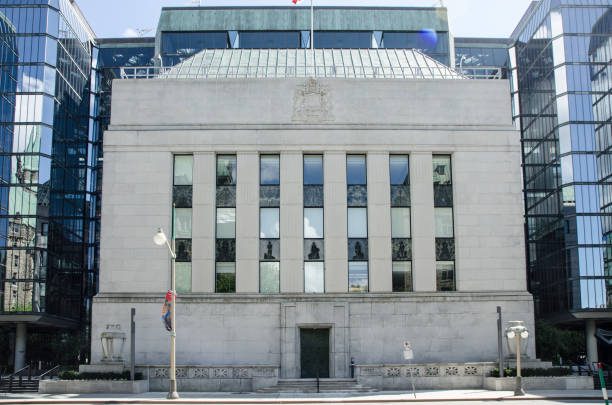The Bank of Canada held the overnight rate unchanged for a fifth consecutive meeting, extending a pause that started after the last hike in July last year.
Softer inflation data in January made sure that no hiking bias (dropped in January) would reappear. BoC’s key messaging remains that we’re on the right path to target inflation, but just not there yet.
The BoC highlighted weak final domestic demand in Q4 last year and easing wage pressures as evidence that high interest rates are working to restrict economic activities, but not enough to stamp upside inflationary risks yet.
Progress in lowering the BoC’s preferred core inflation measures, including CPI trim and CPI median has been slow and choppy – both measures dropped in latest data for January but were also above 3% that is the top end of the inflation target range in Canada.
Later in the press conference (that was the first for a non-MPR meeting), Governor Macklem once again confirmed that the focus of discussions at the BoC have shifted to how long rates will stay high, but also said explicitly that “It’s still too early to consider lowering the policy interest rate.”
Still, persistently softer macro backdrop and the assessment that the economy is in “modest excess supply” should mean that inflation pressures are much more likely to recede than to reaccelerate – the BoC expected inflation to stay around 3% before gradually easing below that during the second half of this year.
As expected, there was no announcement on the ending of the QT program. Guidance is likely to come in Gravelle’s speech on March 21 about balance sheet normalization.
We’ll look forward to releases of the bank’s quarterly surveys on Canadian businesses and consumers, scheduled ahead of the meeting in April for more forward-looking information on inflation and wage expectations as well as corporate price setting behaviour.
Bottom line: The BoC’s decision to hold the overnight rate steady again in March confirmed that interest rates are already at levels that are high enough to restrict economic activity and further slow price pressure. We expect the BoC to start gradually lowering the policy rate by mid-year, after allowing for clearer signs of easing in core inflation readings to come through.







